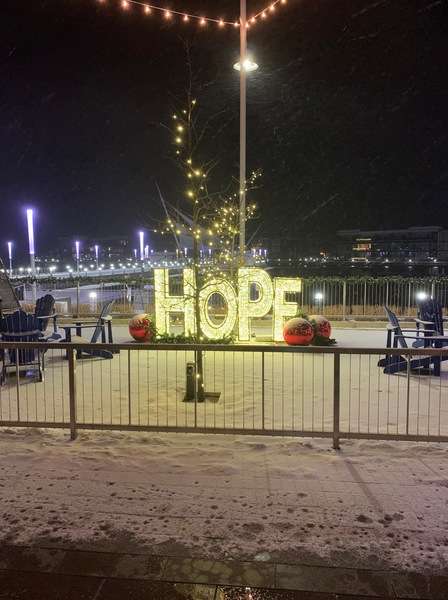Preached at All Saints,
King City, Anglican Diocese of Toronto, 26 December, 2021.
Readings for this
Sunday: 1 Sam 2:18-20,26; Ps 148; Col
3.12-17; Lk 2.41-52.
As God's chosen
ones, holy and beloved, clothe yourselves with compassion, kindness, humility,
meekness, and patience. (Col 3.14)
Reading this
verse put me in mind of clothes, and how treacherous they can be at this time
of year, for of all the Christmas gifts we can give, it seems to me that
clothes are the most likely to disappoint. What if they don’t fit?
What if the recipient doesn’t like them? Or worse, what if the recipient
wanted something more exciting? We joke about the boring aunts or uncles
who give yet another pair of socks at Christmas, or the poor dad who gets yet
another ugly tie.
And yet at the
same time we do feel the need to dress to celebrate Christmas. “Don we
now our gay apparel” says the old carol, and many people do just that, even if
it is with tongue firmly planted in cheek. Some wear ugly Christmas
sweaters, Santa hats, reindeer antlers and Christmas ties to work. Some
of these items were even spotted on our All Saints Christmas Day Zoom service!
What if God’s
Christmas present to us was new clothing, not tacky, but stylish and
comfortable? What if these were clothes we would want to wear everywhere
we go?
Our reading from
Colossians tells us to put on new clothes as part of our new life in
Christ. Of course the author of Colossians (who may or may not be Paul)
is using a figure of speech. He is using clothing as an image of how our
relationship with Jesus has the power to change us and the way we live with and
treat others.
“As God’s chosen
ones, holy and beloved, [clothe yourselves with compassion, kindness, humility,
meekness, and patience”.
There are two
things I’d like to focus on in this verse. Both of them, I hope, will
shed light on the Christmas mystery that we have just celebrated.
The first is that
God has reached out to us. Colossians calls us “God’s chosen ones, holy
and beloved”. Those words help us understand why Gabriel came to Mary and
why the baby in the manger came to be born. God reached out to us, stood
with us, because he cares for and loves those who he created. Nobody was
expecting this. In the ancient world, the gods were lofty beings,
sometimes cruel and uncaring, who had little to do with the physical
world. Even Israel, which had been chosen by Yahweh the living God, could
not imagine that he would come to earth this way.
Peter Wehner, an
ethicist and former politician, once said that Christmas was a revolution in
human existence because it gave humans a dignity that they did not give one
another. “Christmas teaches us that human beings have worth because we
are valued by God, who took on flesh, entered our world, and shared our
experiences — love, joy, compassion and intimate friendships; anger, sorrow,
suffering and tears.”
When you think
about, this explains the preaching of someone like Pope Francis. If God
loves us, he loves everybody - you, me, the poor, the homeless, the
refugee. And if God loves all of us, how can we not love one another?
And if we love one another, how can we care for one another?
The second thing
I wish to point out is that we can care for one another because God has changed
us. Colossians not only calls us “God’s chosen ones” but it also says
that we are “holy”. How did we get to be holy? Was it because we
did something to impress God? Well, no. Someone once said that God
doesn’t need our good works, but our neighbour does. The gift of Christmas
is also the gift of a new way of living that makes it possible to love our
neighbour as much as ourselves.
One of the main
ideas in Colossians is the idea of the new life in Christ. Col 3:9-10
says that as followers of Jesus we have “stripped off the old self with its
practices and have clothed yourselves with the new self”. This is the
same idea that we hear in our baptism service. In our passage today,
Colossians goes on to describe some of the things that make up our new self,
our new identity as Christians. It would take too long to go through each
of them, but let me point one thing about the new identity behind this figure
of speech of new clothes.
“Clothe
yourselves with compassion, kindness, humility, meekness, and patience.”
These are all social virtues. By that I mean that you don’t practice
compassion in solitude. You don’t go off somewhere private to be kind and
humble. These are all things we do around other people. We are
compassionate and kind to those who are in need. We are modest because
arrogant and proud people think of their own needs way ahead of the needs of
others. We are patient with other people because, sometimes, other people
take up our time and energy.
So, if
compassion, kindness, humility, meekness and patience are the Christmas clothes
we find under the tree, then they are clothes that are meant for wearing
wearing in public. We are kind to others. We are humble and
meek with others. We are patient with others. These
are clothes to wear wherever we go, whatever we do. They are work clothes,
lounging around the house clothes, Sunday best clothes. And, in a very
real sense, they are work clothes, because its wearing these clothes, acting
this way, that others see our faith.
Frankly, people
need to see and to benefit from how we live out our faith.
This Christmas
Eve, an American psychiatrist and blogger named Scott Alexander posted an essay
called “How Bad Are Things?” He was reflecting on the human misery he saw
in his practice, and he got to wondering, how many people out there have the
problems I see? Is it just that only the most miserable people see
psychiatrists, or is that many many people are miserable and only tell their
troubles to psychiatrists because nobody else cares?
As an experiment,
Alexander studied the probability that people might have a problem that would
make their life miserable, including but not limited to poverty, mental
illness, abuse, or imprisonment, and then ran the numbers. He concluded
that our of every 20 people, 11 out of 20 have some problem that would make
their life miserable. That figure does not count all conditions that
might make for misery, or the many people too shut in, poor or isolated to ever
seek help. Alexander’s conclusion was that “ The world is almost
certainly a much worse place than any of us want to admit. And that’s before
you’ve even left America.”
Alexander’s
concluded that if you accept that things are this bad, then you should practise
charity and philanthropy. And this is from a man who isn’t arguing from a
Christian point of view. As Christians, these figures remind us that the
incarnation is a gift for each generation of the faithful to take up
every Christmas. We are all chosen. We are all holy.
live the gospel together. We are called to be part of a community of the
faithful that is kind and compassionate, not just to our fellow believers, but
to all those around us.
Let me finish
with a final thought about Christmas clothes. In my family the classic
Christmas film was A Christmas Carol, the black and white classic with Alistair
Sim as Scrooge. In the opening scenes Scrooge is in black, sombre
clothing, like the undertaker he sees waiting for his lonely, miserable death
in the vision shown to him by the third spirit. At the end, as Scrooge is
a changed man, reentering the world, we see him pay a visit to his nephew’s house,
and it’s a shock and a joy to see Scrooge in warm, festive clothing, and to
realize he’s been transformed into a Victorian dandy. It’s a visual way
of showing Scrooge’s return to society and his discovery of the importance of
human life.
The same is true
of the Christian clothing given to us. If you look under the tree you
won’t find a tacky Christmas sweater. You’ll find beautiful, comfortable,
festive clothing, far more costly than any designer label would be,
clothing that will be a delight to us and to those around us. So, on
this First Sunday of Christmas, let us consider the gift of new life that God
has given us. Let’s put on this new life, wear it with pride, and show it
to others who need that new life. Amen.






